Africa
Instability hits global markets as Trump tariffs kick in
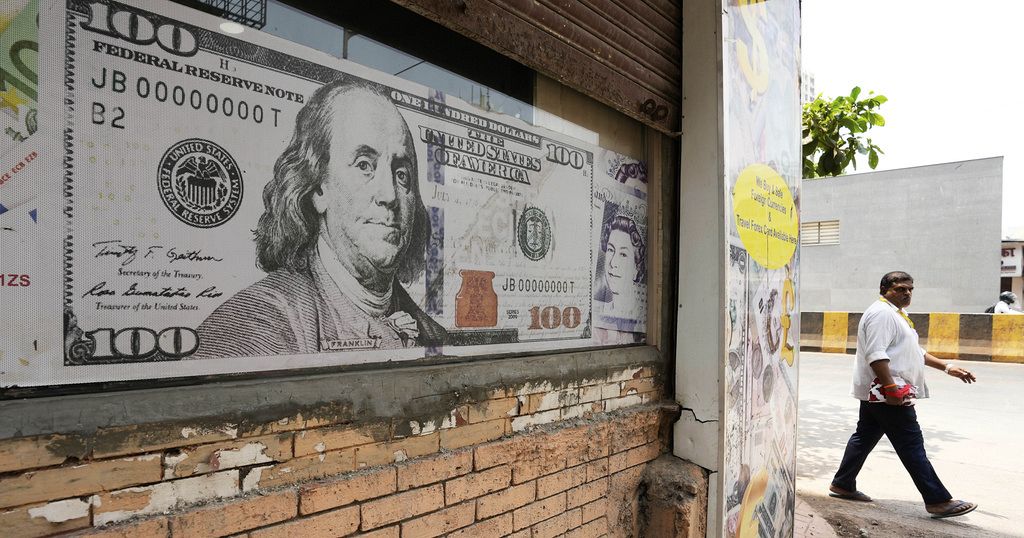
Asian and European shares slid on Wednesday after U.S. President Donald Trump’s latest tariff hikes took effect and he threatened to add still more.
Uncertainty is running high about what Trump will do next in his trade war. In a speech Tuesday night he said plans tariffs on pharmaceuticals so that more medications would be made in the U.S.
Trump’s latest tariffs include a massive 104% levy on U.S. imports of Chinese products. However, Chinese markets reversed early losses and gained ground on Wednesday.
Driving the gains were massive share buybacks by big state-run investment funds and other state companies that often are instructed to support the market in times of crisis. Investors also are expecting the government to step up spending and other measures to help counter the impact of the tariffs, which will hit small manufacturers and traders that create the most jobs the hardest.
A slew of losses in Asia
Beijing issued a policy paper reiterating China’s right to protect its businesses with unspecified countermeasures, while it emphasized it preferred to resolve trade issues through dialogue.
The paper also argued that taking into account trade in services and U.S. companies’ operations in China, economic exchange between the two countries is “roughly in balance.”
Hong Kong’s Hang Seng rose 0.7%, while the Shanghai Composite index closed 1.3% higher.
Taiwan led the losses in Asia, as its Taiex plunged 5.8%. Big tech industries were among the biggest decliners.
South Korea’s Kospi lost 1.7% to 2,293.70, and the government said it would provide help for its beleaguered automakers.
Slim hopes
In early European trading, Germany’s DAX lost 2.4% to 19,796.83. In Paris, the CAC 40 declined 2.4% to 6,930.62. Britain’s FTSE 100 gave up 2.2% to 7,735.72.
Analysts say the markets will have more swings up and down given uncertainty over how long Trump will keep the stiff tariffs on imports, which will raise prices for U.S. shoppers and slow the economy. If they persist, economists and investors expect them to cause a recession. If Trump lowers them through negotiations relatively quickly, the worst-case scenario might be avoided.
Trump’s trade war is an attack on the globalization that’s shaped the world’s economy and helped bring down prices for products on store shelves but also caused manufacturing jobs to leave for other countries. Trump has said he wants to narrow trade deficits, which measure how much more the United States imports from other countries than it sends to them as exports.
Africa
Funeral held in Kenya for TikTok content moderator
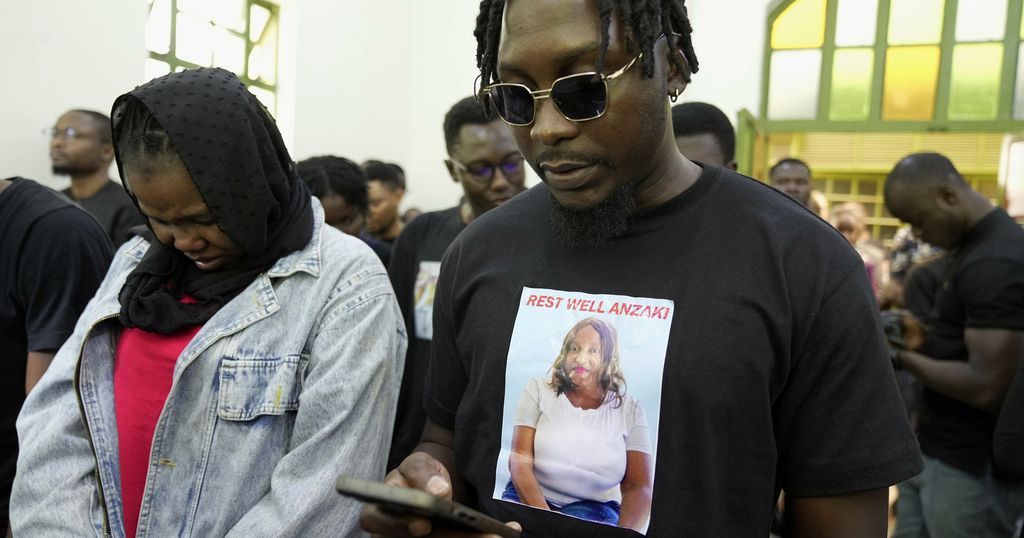
The funeral was held on Thursday for a Kenya-based Nigerian content moderator who died in unclear circumstances last month.
Ladi Anzaki Olubunmi’s decomposed remains were found on March 7 at her apartment on the outskirts of the Kenyan capital, Nairobi, three days after she failed to show up at work.
Among the mourners was her elder brother, who travelled to Nairobi for the emotional ceremony. He was overcome by grief as friends and colleagues eulogised Olubunmi as “selfless.”
Olubunmi, 43, who was employed as a TikTok content moderator subcontracted by a global outsourcing firm, Teleperformance, had complained of fatigue before her death, the cause of which has not been revealed.
She had been living in Kenya since 2022 and only managed to travel back home once, despite having an annual return ticket benefit in her employment contract.
Colleagues said she was “desperate to go home” but was denied leave. Teleperformance Kenya said in a statement in March that she wasn’t denied leave to travel home. In a tribute, a company spokesperson described Olubunmi as “a selfless, compassionate and deeply caring individual.”
Content moderators working for subcontracted firms based in Kenya have in the past described working conditions that they say include lower than average pay, lack of mental health support, long working hours and intimidation.
More than 100 former Facebook content moderators have sued the social media company for poor pay and working conditions and unfair termination of employment.
Tauheed Tayo Yakubu, a colleague of Olubunmi, described her as a champion for better working conditions, detailing how in November 2023, she staged a walkout for Nigerian colleagues demanding for valid work permits.
“She requested that every Nigerian leave the job immediately and then we all marched,” he said.
Africa
South Africa’s tax row heads to court as implementation date nears
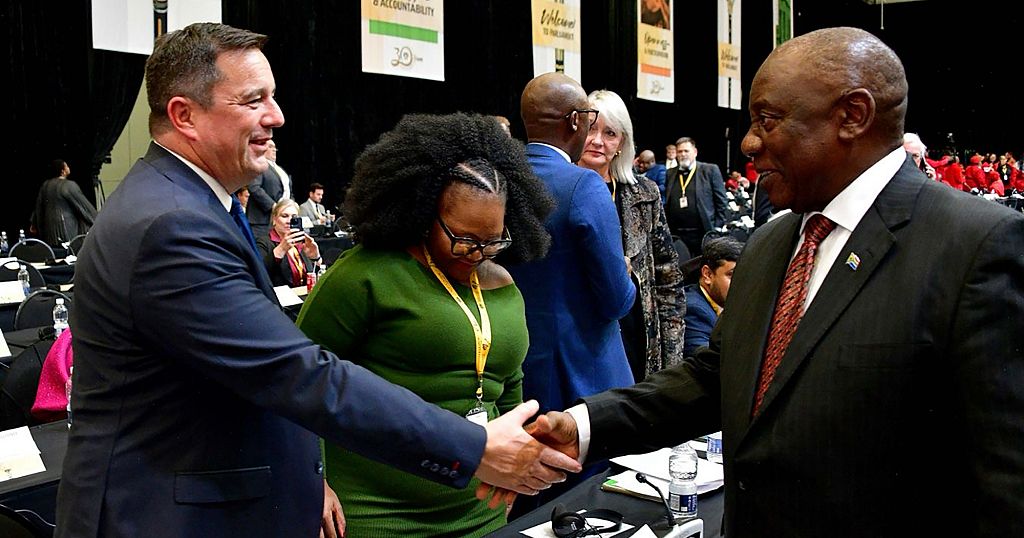
The South African government is still embroiled in a tax row between the ruling African National Congress party (ANC) and the Democratic Alliance (DA).
The DA party has taken the government to court seeking to bar the 0.5% VAT increase to 15.5% as proposed by the government.
This increase is set to take effect on 1st May.
The government of South Africa has maintained that a 0.5% increase in VAT will help the country offset its budget deficit of R13.5bn.
The Democratic Alliance, which joined the government after the long-ruling African National Congress lost its parliamentary majority last year, said it could not support a tax increase that would further burden the poor majority of the country’s population.
VAT is payable on goods and services, including food and electricity. Opposition parties and civil society have criticized the proposed budget as anti-poor.
According to the latest budget, more than 20 million people in South Africa rely on welfare grants, with the unemployment rate at over 32%.
The tax increase is meant to generate over 15 billion rand (about $800 million) in revenue annually to fund health, education and social services programs.
Already, the budget had been revised to address foreign aid cuts by the new U.S. administration.
This is the latest disagreement between the two main parties after the ANC lost its 30-year parliamentary majority in its worst-ever electoral performance last year.
The ANC and DA have ideological differences on issues including foreign policy, land reform, education and health sector reforms.
On Wednesday, a small party outside the unity government, ActionSA, unexpectedly tipped the scales in favor of the ANC to pass the budget.
Africa
European Union announces new asylum measures
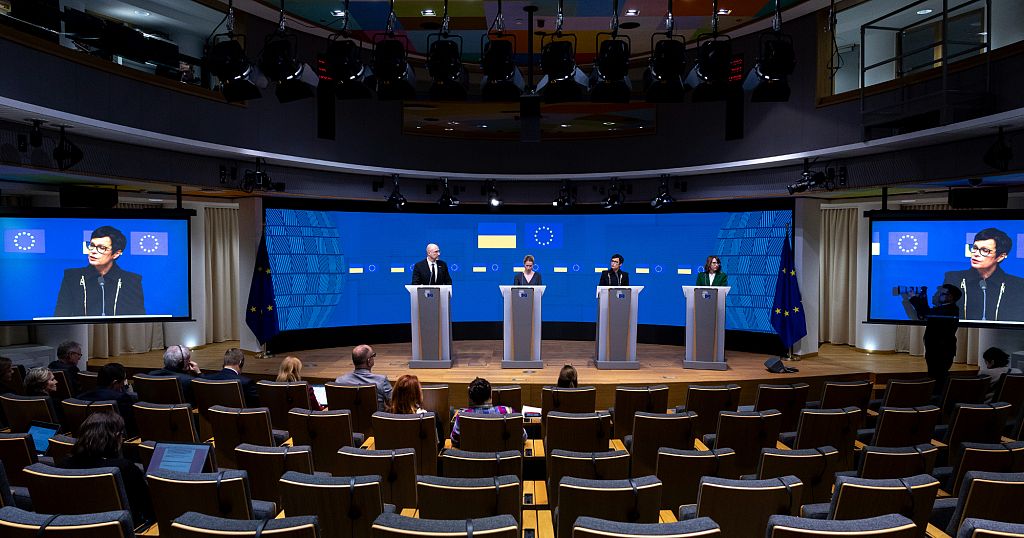
Migrants from Bangladesh, Colombia, Morocco and Tunisia are unlikely to be granted asylum in Europe and should have their applications fast-tracked so they can be sent home more quickly, the European Union’s executive branch said on Wednesday.
The European Commission said that seven countries – also including Egypt, India and Kosovo – should be designated “safe third countries.” Applications by their citizens for international protection would be wrapped up in 3 months rather than the usual 6.
“We streamline and we speed up the processing of asylum applications, but we do not cut back on fundamental and human rights,” said European Commission spokesperson Markus Lammert.
“What it does is it allows for faster procedures for those whose asylum applications are likely to be unfounded,” he added.
In total, more than 200,000 people from these countries applied for asylum last year.
A year ago, E.U. nations endorsed sweeping reforms to the bloc’s failed asylum system. The rules were meant to resolve the issues that have divided the 27 countries since well over 1 million migrants swept into Europe in 2015, most fleeing war in Syria and Iraq.
But the new rules are not set to enter force until at least June 2026, and the commission is desperate to speed up procedures, including by deporting people more quickly, to ease pressure on migrant reception facilities.
“This E.U. list brings harmonization across member states,” said Lammert. “And this will ultimately help reduce secondary movements and also asylum shopping.”
The plan must be endorsed by E.U. member countries and the European Parliament before it can enter force.
Under it, asylum applications by people coming from countries that are candidates to join the E.U. – Albania, Bosnia, Georgia, Moldova, Montenegro, North Macedonia, Serbia and Turkey – would also be fast-tracked.
On top of that, E.U. members could speed up proceedings for people coming from countries where 20% or less of applicants are granted international protection in Europe. The so-called recognition rate for the seven “safe third countries” is 5% or less.
-
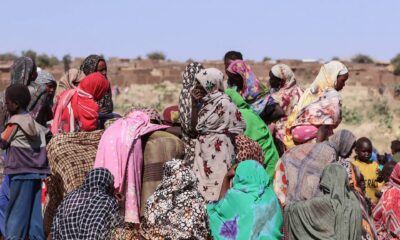
 Conflict Zones2 days ago
Conflict Zones2 days agoAfter two years of war in Sudan, the world can no longer plead ignorance | Conflict
-

 Education2 days ago
Education2 days agoTrump administration revokes humanitarian parole of Spanish teacher
-

 Conflict Zones13 hours ago
Conflict Zones13 hours agoHaiti in ‘free fall’ as violence escalates, rights group warns | Armed Groups News
-

 Education2 days ago
Education2 days agoSuspect in custody after 4 hurt in Texas high school shooting
-

 Europe2 days ago
Europe2 days agoPolice arrest couple for breeding and selling exotic cats in Spain
-

 Sports2 days ago
Sports2 days agoStephen Curry and Jimmy Butler lift the Warriors past the Grizzlies and into the NBA Playoffs
-

 Europe2 days ago
Europe2 days agoMultiple French prisons attacked in response to government’s narco crackdown, ministers say
-

 Europe2 days ago
Europe2 days agoCody Balmer, the suspect in arson at Pennsylvania governor’s home targeted the governor for his views on war in Gaza, warrant says




